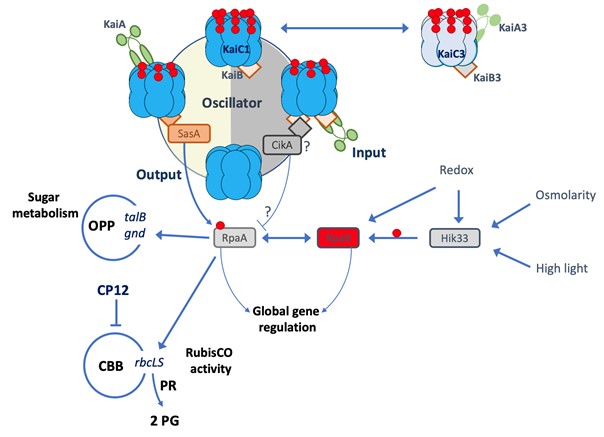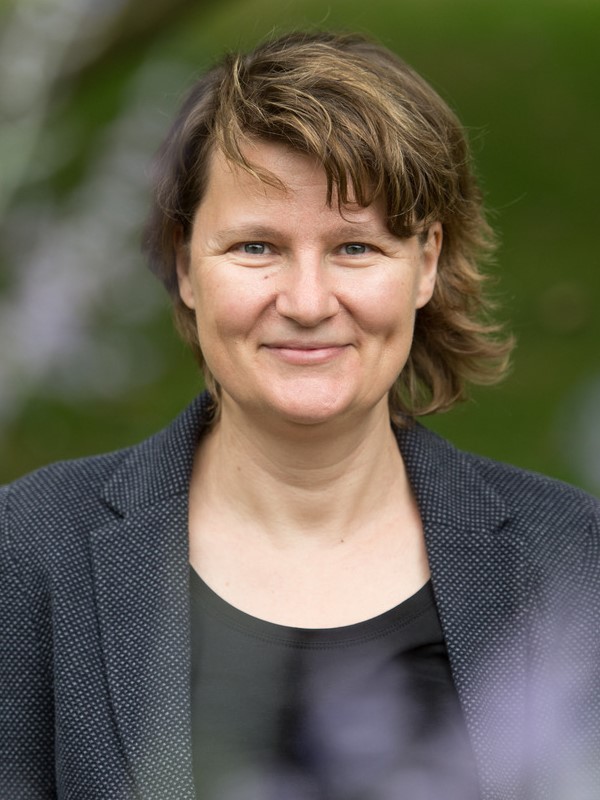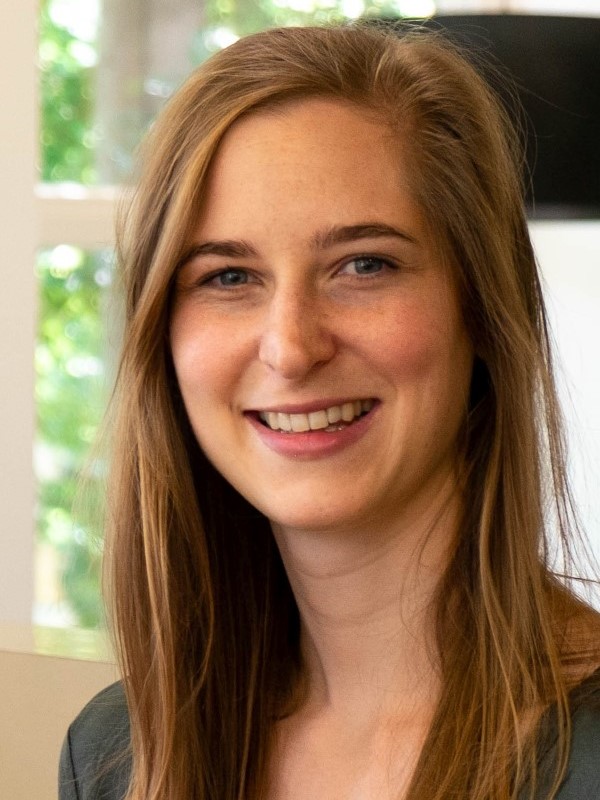Wilde lab
Control of the cyanobacterial day-night metabolism of Synechocystis sp. PCC 6803 by its biological clock system
When cyanobacteria are grown in a 24 h diurnal cycle, they perform photosynthesis and CO2 fixation during the day and switch to a heterotrophic metabolism in the dark by degrading the glycogen reserves that were synthesized during the light period. Based on our previous studies of biological clock systems, we conclude that the model cyanobacterium Synechocystis 6803 involves homologs of the known canonical central and output clock components to control the switch between autotrophic (in the light) and chemoheterotrophic (in the dark) metabolic modes. Within the scope of the SCyCode programme, we want to elucidate the mechanism of integration of light and nutrient conditions, time information and metabolic signals in the control of cyanobacterial diurnal metabolism.

Related publications
1. Wiegard A, Köbler C, Oyama K, Dörrich AK, Azai C, Terauchi K, Wilde A, Axmann IM. (2020) Synechocystis KaiC3 displays temperature and KaiB dependent ATPase activity and is important for growth in darkness. J. Bacteriol. 202, e00478-19.
2. Köbler C, Schultz SJ, Kopp D, Voigt K, Wilde A. (2018) The role of the Synechocystis sp. PCC 6803 homolog of the circadian clock output regulator RpaA in day-night transitions. Mol. Microbiol. 110, 847-861.
3. Dörrich AK, Mitschke J, Siadat O, Wilde A. (2014) Deletion of the Synechocystis sp. PCC 6803 kaiAB1C1 gene cluster causes impaired cell growth under light-dark conditions. Microbiology 160, 2538-2550.
4. Axmann IM, Hertel S, Wiegard A, Dörrich AK, Wilde A. (2014) Diversity of KaiC-based timing systems in marine Cyanobacteria. Mar. Genomics. 14, 3-16.
Principal Investigator

University of Freiburg
Institute of Biology III
Molecular Genetics of Prokaryotes
Schänzlestr. 1, 79104 Freiburg, Germany
annegret.wildebiologie.uni-freiburg.de
Website
Members

kim.sebastianbiologie.uni-freiburg.de

Alumni

Alumni